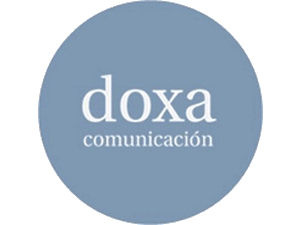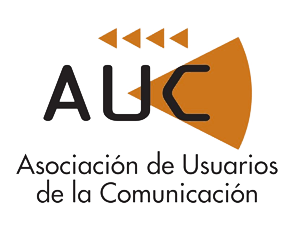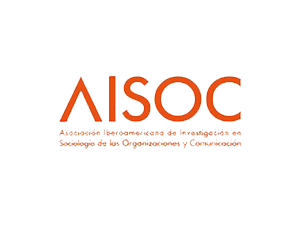Resumen
El derecho de acceso a la administración de justicia es una garantía que ha sufrido transformaciones debido a los efectos originados por la Pandemia COVID-19. En Colombia, durante el período 2020-2021, el poder público hizo el tránsito de un modelo de justicia de tinta y papel a la inteligencia artificial en sede judicial. Este cambio esencial produjo un escenario de desigualdad manifiesta en la gestión y trámite de los litigios jurisdiccionales, a causa de las barreras de acceso a las TIC que tienen algunos grupos poblacionales. En ese orden de ideas, el Estado colombiano tiene en su cabeza la obligación de conjurar las vicisitudes que presenta un modelo de justicia digital, máxime si pretende satisfacer las metas de los Objetivos de Desarrollo Sostenible. La presente ponencia, tiene como objetivo analizar cuáles son las barreras frente a la garantía de la igualdad de acceso a la justicia para todos, en el marco del ODS 16, estudio del período 2020-2021.
Tipo de investigación y enfoque
De acuerdo con lo propuesto en la presente ponencia, es dable anotar que la investigación es aplicada, debido a que, pretende acercarse al mundo fenomenológico a través de elementos epistemológicos que resuelvan problemas de la sociedad.
Ahora bien, en lo que respecta al enfoque metodológico, esta investigación es de tipo cualitativa por la proposición de los objetivos.
Enfoque teórico y estrategia de investigación
Se adopta para este proyecto un enfoque hermenéutico jurídico-social, el cual también diseña la estrategia de investigación. Para Hernández, R. (1998), la fenomenología hermenéutica se concentra en la interpretación de la experiencia humana y los textos de la vida.
Frente a los resultados
A partir de los hallazgos, se presenta una propuesta en la cual se plantean acciones que posibilitan: i) el empoderamiento de los ciudadanos en el reconocimiento de sus garantías judiciales; ii) el establecimiento de un modelo híbrido o mixto que permita continuar en la justicia digital pero que a su vez, garantice el trámite y gestión de los derechos e intereses legítimos de las personas que no cuentan con acceso a internet y medios tecnológicos; iii) el diagnóstico y los retos de la jurisdicción en el proceso de digitalización de la justicia.
Conclusiones
El derecho de acceso a la administración de justicia ha sufrido cambios en su núcleo esencial debido al proceso acelerado de digitalización de la justicia. Esta transformación ha reforzado las barreras que tienen todos los ciudadanos para salvaguardar sus derechos en los escenarios judiciales. Se evidencia un aumento en la brecha digital caracterizada en problemas de acceso, uso y calidad de las TIC. En ese orden de ideas, el Estado colombiano debe prestar especial atención a esta situación focalizada, máxime si pretende cumplir la Meta 16.3 del ODS N°16. Es imperativo el establecimiento de un modelo mixto que permita continuar en la justicia digital pero que, a su vez, garantice el trámite y gestión de los derechos e intereses legítimos de las personas que no cuentan con acceso a internet y medios tecnológicos.
Palabras Clave / Acceso a la justicia / Igualdad / Objetivos de Desarrollo Sostenible
Abstract
The right of access to the administration of justice is a guarantee that has undergone transformations due to the effects originated by the COVID-19 Pandemic. In Colombia, during the period 2020-2021, the public power made the transition from an ink and paper justice model to artificial intelligence in the judicial venue. This essential change produced a manifest inequality stage in the management and processing of jurisdictional litigation, due to the barriers to access to ICTs that some population groups have. In that order of ideas, the Colombian State has the obligation to overcome the vicissitudes of a digital justice model, especially if it intends to meet the goals of the Sustainable Development Goals. The purpose of this paper is to analyze the barriers to guaranteeing equal access to justice for all, within the framework of SDG 16, a study of the period 2020-2021.
Type of research and approach.
According to what is proposed in this paper, it is worth noting that the research is applied, because it aims to approach the phenomenological world through epistemological elements that solve societal problems.
Now, with regard to the methodological approach, this research is qualitative due to the proposal of the objectives.
Theoretical approach and research strategy
A legal-social hermeneutic approach is adopted for this project, which also designs the research strategy. For Hernández, R. (1998), hermeneutic phenomenology focuses on the interpretation of human experience and life texts.
Facing the results
Based on the findings, a proposal is presented in which actions are proposed that make possible: i) the empowerment of citizens in the recognition of their judicial guarantees; ii) the establishment of a hybrid or mixed model that allows continuing in digital justice but that in turn, guarantees the processing and management of the rights and legitimate interests of people who do not have access to the internet and technological means; iii) the diagnosis and challenges of the jurisdiction in the process of digitization of justice.
Conclusions
The right of access to the administration of justice has undergone changes in its essential core due to the accelerated process of digitization of justice. This transformation has reinforced the barriers that all citizens have to safeguard their rights in judicial scenarios. There is evidence of an increase in the digital divide characterized by problems of access, use and quality of ICTs. In this regard, the Colombian State must pay special attention to this situation, especially if it intends to meet Target 16.3 of SDG 16. It is imperative to establish a mixed model that allows to continue in digital justice but that, in turn, ensures the processing and management of the rights and legitimate interests of people who do not have access to the Internet and technological means.
Keywords / Access to justice / Equality / Sustainable Development Goals
FIRMANTES
| Nombre | Adscripción | Procedencia |
|---|---|---|
| Jaime Andrés Sosa Ojeda | Universidad de Antioquia | Medellín, Colombia |
| Angie Michelle Jaimes López | Universidad de Antioquia | Medellín, Colombia. |



















